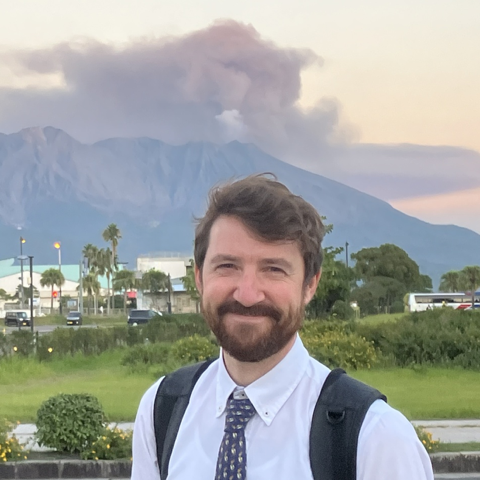Abstract:
Fluid-rock interactions are ubiquitous in volcanic systems. For example, Adatarayama volcano in Fukushima Prefecture (Japan) is home to multiple complex hydrothermal processes, broadly divided across four alteration zones. Operative reactive processes include pyrite alteration, the formation of clays, silica redistribution, and precipitation of sulfates and other minerals. Intriguingly, evidence for low-temperature hydrothermal alteration is found in direct contact with zones of extreme high-temperature alteration, highlighting that the reaction conditions (pressure-temperature-composition: PTX) are highly spatially and temporally variable. Critically, the nature and extent of alteration can control rock properties, including permeability and strength, in turn important determinants of volcano stability and explosivity. Through reactive laboratory experiments at elevated temperatures and pressures, we aim to “reverse engineer” some of the diverse alteration textures observed in the field. In turn, this allows us to map out the parameter space dominating different alteration types and gain insight into volcanic hazards. In concert with extensive geochemical characterisation, field surveying, and reactive modelling, these experiments form part of a larger effort to understand the nature of volcanic hydrothermal systems and fluid–rock interactions more generally.
Speaker: Dr. Jamie I. Farquharson (Niigata University)

Host: Christine Houser, ELSI.
Date: Wed. 18 Jun. 16:00-17:00 JST
Venue: Mishima Hall, ELSI
